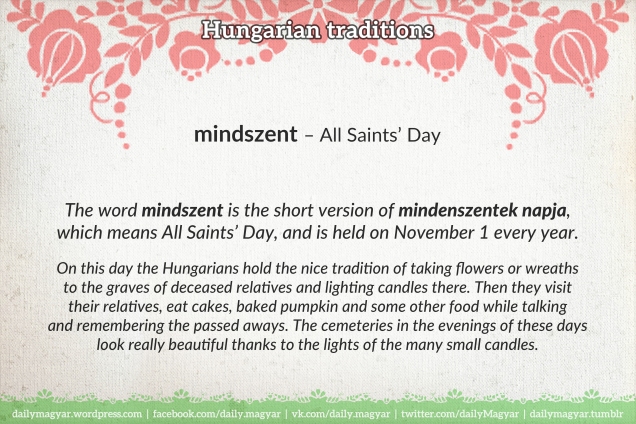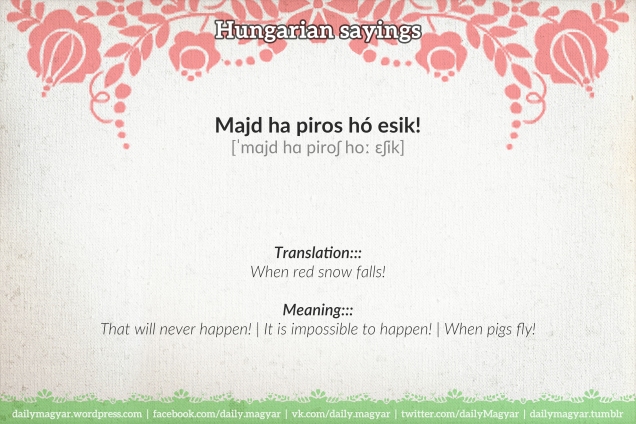On this day the Hungarians hold the nice tradition of taking flowers or wreaths to the graves of deceased relatives and lighting candles there. Then they visit their relatives, eat cakes, baked pumpkin and some other food while talking and remembering the passed aways. The cemeteries in the evenings of these days look really beautiful thanks to the lights of the many small candles.
minden [ˈmindɛn] – everything; every
szent [ˈsɛnt] – saint
nap [ˈnɑp]
1) day
2) sun
mécses [ˈmeːtʃeʃ] – lampion; candle (in glass)
gyertya [ˈɟɛrcɑ] – candle
gyertyát gyújtani [ˈɟɛrcaːt ɟuːjtɑni] – to light a candle
sütőtök [ˈʃytøːtøk] – pumpkin
sütő [ˈʃytøː]
1) baking; frying; roasting; broiling; grilling
2) baker [person]
3) oven
sütni [ˈʃytni]
1) to bake; to roast
2) to shine [the sun]
sülni [ˈʃylni] – to be baking
tök [ˈtøk]
1) squash; pumpkin; vegetable marrow
2) bells (a suit) [in card games]
3) male sex organs; male genital [informal]



